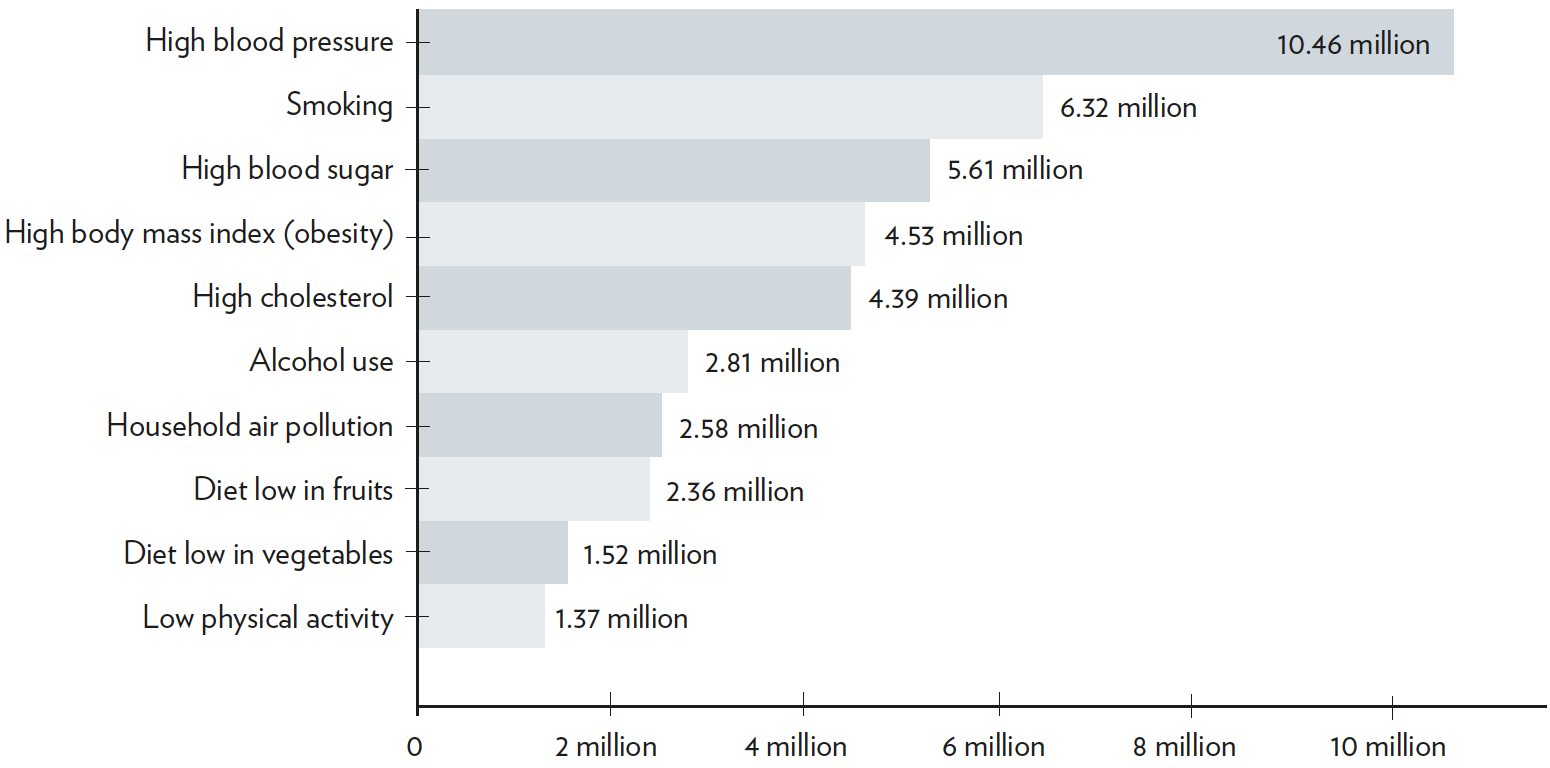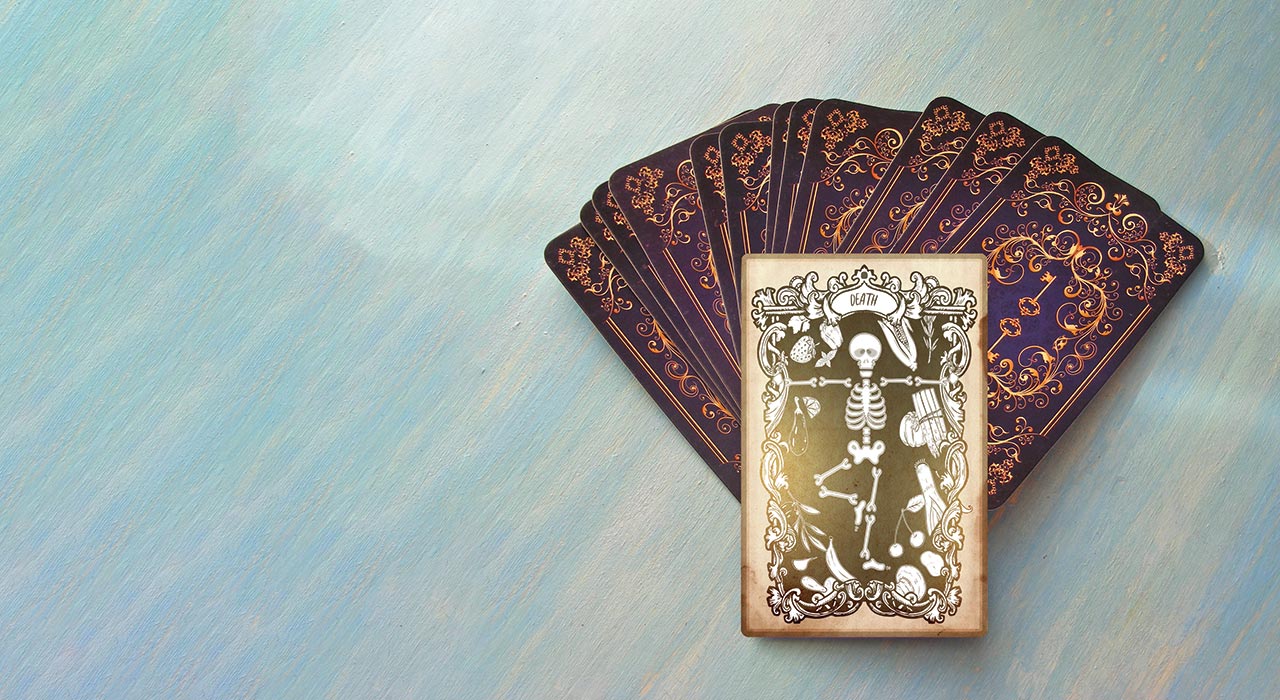Health
Facing The Unspeakable: Your Death
Have you thought about how you might die? Maybe not, But you should. Not just because it could help prevent you dying prematurely, but also because it can dramatically change your health, fitness and life for the better right now.
Something interesting happened to me as I thought about my death. It changed the way I do things on a daily basis. I don’t mean that I began to ‘live every minute as if it’s my last’, quite the opposite, in fact, but assessing my risk of certain types of death, made me realize I’d got the emphasis all wrong. I was actively avoiding and worrying about certain types of death without even realizing it, while not even thinking about other, far more likely ways of meeting the grim reaper. It’s very possible you’re the same.
The eye-opening realization: I spend more time actively worrying about being murdered (an overall one in 100,000 risk) than I do of dying of cardiovascular disease (a one in five risk). Don’t get me wrong – I eat healthily, keep fit and look after my body because I’m aware of heart disease and all the ways in which you can protect yourself against it, but my desire to do that isn’t based on fear of a heart attack, it’s more about an overall feeling good about myself. But murder, or even the possibility of becoming a victim of a natural disaster, features far more regularly in my thoughts – in fact, I even consciously change my behavior because of it.
Am I alone in this? I doubt it. As a woman, someone who thinks twice going for an evening jog with her ear buds in (‘in case I don’t hear an attacker coming up behind me’), who keeps her keys between her fingers when walking around after dark and carries a personal alarm in her handbag, the idea of being physically attacked by a man, possibly to the point of having to fight to the death, is something I’ve lived with all my life. Fact is, though, men are far more likely to be murdered by a stranger than women, and women are twice as likely to be murdered by their own partners than some stranger on the street! So not only is my fear completely unrealistic, it also takes my attention away from far more likely possibilities – cardiovascular disease, the leading cause of death worldwide (32%), then cancer, respiratory disease, digestive disease, road accidents, liver disease, kidney disease, suicide… in fact homicide is so far down the list I shouldn’t be wasting my time on it.
The things I should be worrying about are not even really on my personal radar, which is surprising given that I write about health. The thing is, like most people, I never actually think those things are going to affect me. And apparently this inability to recognize life’s risks isn’t unusual – we humans are simply inept at it. This is why you’ll happily light up a cigarette while ordering the healthy salad at a restaurant. Or why you’ll zig-zag your way through traffic at speed and then worry about your plane falling out of the sky. This is most likely a self-preservation technique of the human mind, because in reality if we were all walking around pondering our impending deaths, we might not pay off our credit card bills, or return the borrowed dress, or even bother responding to that email or phone call. Living every minute like it’s your last doesn’t really work, because we never know whether it’s the last or one of many, many, many more to come. So, instead, we worry about the wrong kinds of dying…
Death Done Right
While dying and death is usually a topic dealt with by doctors, lawyers and crime enforcement officials, it’s a subject we should all bring up with family. It needs talking about openly, even if it makes you uncomfortable. And the reason for this is simple – talking about death within your family could not only help you live longer and healthier, it could very well prevent a premature or slow painful death. That’s worth a little discomfort, no?
With this in mind, I talked to my family about death. I asked my parents how their parents and relatives had died as well as at what age. Well, what a surprise! Of my closest genetic links (parents, siblings, grandparents, aunts and uncles), the majority have died of heart-disease related deaths. Not a single murder. Looks like I’d live healthily for longer if I put those ear buds in and went for that run, rather than avoid the run for fear of being attacked. On further investigation of my family’s health, it became pretty clear that the heart disease issue was a more environmental, lifestyle choice-based, rather than genetic too. A grandpa who nearly hit 100 and great-grandma who went beyond were both devoted walkers. The relatives who had died prematurely of heart-related problems hadn’t exercised much at all, ate rich food and drank heavily.
Your family history isn’t a death sentence, it’s actually a call to arms – investigating it can give you the tools to live a longer, healthier life. And I don’t know about you, but what I fear more than dying is dying slowly of ill health. When I took a test to check the average life expectancy for someone like me (on the Office for National Statistics website) I found I’ve got a one in four chance of reaching 96. The thought of that had a big impact on my thinking. I realized that I didn’t want to die on the way to 101, bedridden and unable to enjoy the aspects of life I love so much now – being outdoors, swimming, exploring the world with friends and family and so on. At least two of my relatives spent their final years nearly bed-ridden and unable to communicate properly because of strokes that they had suffered along with the heart disease. That’s not a good way to go. Others in my family died in their sleep at old age – that’s what I call a good death.
Risks Leading to Death
The way you live your life has a direct impact on how you’re likely to die, obviously. So here are the risk factors most likely to cause a premature end, in order.

Out Of The Box Thinking
So for me at least, the fight to protect myself against heart disease has become very real, far more than it was before I considered my own death in this way. I took a good hard look at my diet and also my exercise regime, asking myself if I was doing all I could to prevent the heart disease others had had in the family. Frankly, it was pretty clear that while I do exercise and eat healthily to some extent, my diet and exercise regime could do with a change. I love strength training and am pretty lazy when it comes to aerobic exercise. And while being strong gives me a great feeling, I need to get my heart pumping if I’m to keep it from getting weak and vulnerable to disease. No more avoiding runs. No excuses. My life depends on it. I also cut back on saturated fat in my diet. While I eat plenty of vegetables and fruit, and lean protein, I am a sucker for anything with cream and cheese… plus I am absolutely guilty of smothering my toast with obscene amounts of butter. I still do that, but only at weekends. That way, I’m reducing my intake without missing out on that delicious buttery toast.
Of course, your personal risk of dying a certain way might be different – you may have a family history of a certain type of cancer, or perhaps you live in a part of the world where malaria or HIV/AIDS kills more people than heart disease.
But if you live in the western world, the chances are that on investigating your own family history of death, you’ll find a similar pattern to me. Heart disease is so prevalent, but it’s something women tend not to think about – it’s a ‘man’s’ thing. Research shows that women wait longer to go to hospital or call an ambulance when they experience heart attack symptoms. As a result, compared to men, they’re twice as likely to die. It’s time, though, to stop thinking of these statistics as relating to ‘them’ – it’s about me, and you. If we want a good death – and I know I do – it’s time to change the way we live today. And the way we talk about death.














